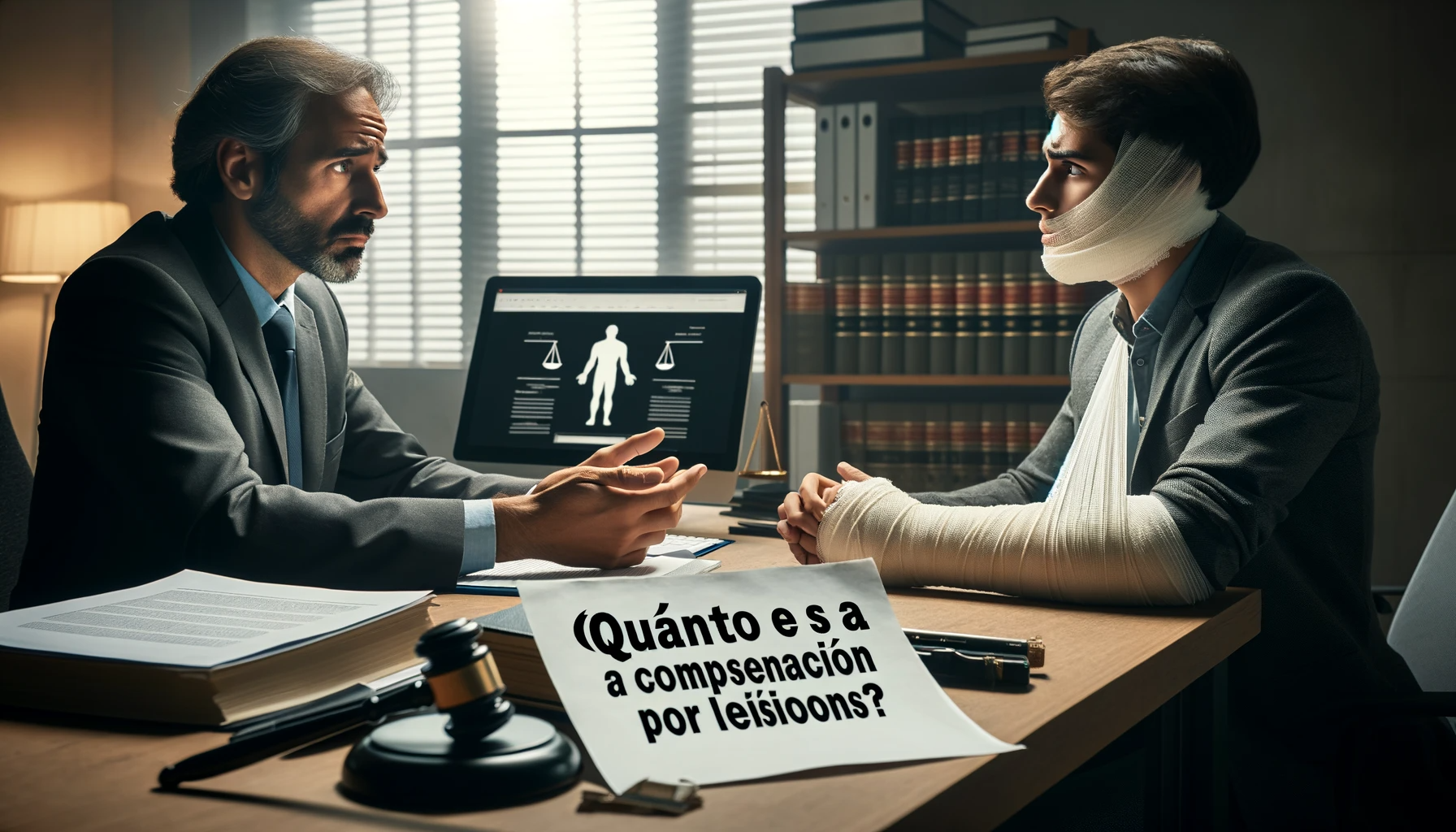Whiplash Woes: Navigating Legal Resources for Car Accident Neck Injuries
Introduction
Whiplash is a common yet often misunderstood injury that can significantly impact the lives of those involved in
car accidents. Navigating the legal landscape to secure proper compensation and treatment can be daunting. This guide aims to shed light on the crucial steps and resources available to whiplash victims, ensuring they are well-informed and prepared to handle the aftermath of such injuries.
What is Whiplash?
Whiplash, typically resulting from rear-end car collisions, is a neck injury caused by a forceful back-and-forth motion of the neck. This sudden movement can cause damage to the neck's muscles, ligaments, and tendons.
Definition and Causes
Whiplash is medically defined as a neck strain or sprain resulting from rapid movement. It is often caused by
car accidents, but can also result from sports injuries or physical abuse.
Common Symptoms
Common symptoms include neck pain and stiffness, headaches, dizziness, and sometimes cognitive difficulties. These symptoms might not appear immediately, making it crucial to seek medical attention promptly after an accident.
Taking the right steps immediately after a
car accident can significantly affect the outcome of any legal claims and the recovery process.
Seeking Medical Attention
Your health is the priority. Even if you feel fine, get a medical evaluation to document any injuries, as symptoms might appear later.

Documenting the Accident
Take photos of the accident scene, gather witness statements, and keep a detailed record of events. This documentation will be invaluable for any legal proceedings.
Medical Diagnosis and Treatment
Proper medical care is essential for recovery and for supporting your legal case.
Diagnostic Procedures
Doctors may use X-rays, MRIs, or CT scans to diagnose the extent of whiplash injuries accurately.
Treatment Options
Treatment often includes pain management, physical therapy, and sometimes chiropractic care. Follow your doctor's advice closely to aid your recovery.
Legal Considerations
Understanding the legal aspects of your injury can help ensure you receive the compensation you're entitled to.
Importance of Legal Advice
Consulting a lawyer who specializes in
personal injury can provide invaluable guidance on your case and help you navigate the complexities of legal proceedings.
Steps to Take Immediately
Collect all medical records, document expenses, and follow legal advice carefully. Avoid making statements to insurance companies without consulting your lawyer.
Filing an Insurance Claim
Dealing with insurance companies can be challenging, but knowing the right steps can simplify the process.
Contacting Your Insurance Company
Inform your insurance company about the accident as soon as possible. Provide them with all necessary documentation, including medical reports and accident details.
Required Documentation
Keep a detailed record of medical bills, treatment plans, and any other expenses related to the injury. This documentation will support your claim.
A lawyer can significantly enhance your chances of receiving fair compensation.
When to Consider Hiring a Lawyer
If your injury is severe or if the insurance company disputes your claim, it’s time to seek legal help. A lawyer can handle negotiations and represent you in court if necessary.
How to Choose the Right Lawyer
Look for a lawyer with experience in
personal injury and a track record of successful cases. Personal recommendations and online reviews can help in your decision.
Understanding Your Rights
Knowing your rights as a victim can empower you to take the necessary actions to secure fair compensation.
You have the right to seek compensation for medical expenses, lost wages, and pain and suffering. Understanding these rights is crucial.
Compensation Eligibility
Compensation can cover medical bills, lost income, and other related expenses. A lawyer can help you understand what you’re eligible for.
Building Your Case
A strong case is built on solid evidence and thorough documentation.
Gathering Evidence
Collect all medical records, witness statements, and any other relevant information. This evidence is crucial for proving your injury and its impact.
Importance of Medical Records
Medical records provide essential proof of your injury and its severity. Ensure all treatments and consultations are well-documented.
Negotiating with Insurance Companies
Effective negotiation strategies can significantly impact the compensation you receive.
Strategies for Effective Negotiation
Be prepared, stay organized, and consult your lawyer before making any decisions. Presenting a well-documented case is key to successful negotiation.
Common Pitfalls to Avoid
Avoid accepting the first offer and making statements without legal advice. Insurance companies often aim to minimize payouts.
Settling Out of Court
Settling out of court can be a quicker and less stressful option, but it has its own considerations.
Pros and Cons of Out-of-Court Settlements
Out-of-court settlements can save time and legal fees, but they might result in lower compensation. Weigh the pros and cons with your lawyer.
Tips for Reaching a Fair Settlement
Understand the full extent of your injuries and future medical needs. Aim for a settlement that covers all current and anticipated expenses.
Going to Trial
Sometimes, a trial is necessary to secure fair compensation.
When to Consider a Trial
If settlement offers are inadequate or liability is disputed, a trial might be the best option. Your lawyer can advise on this decision.
What to Expect During the Process
Prepare for a lengthy process. Your lawyer will guide you through each step, from filing the lawsuit to presenting your case in court.
Impact of Whiplash on Daily Life
Whiplash can have long-lasting effects on your physical and emotional well-being.
Physical and Emotional Effects
Chronic pain, limited mobility, and emotional distress are common. It’s essential to address both physical and psychological impacts.
Long-Term Consequences
Long-term consequences can include persistent pain and potential disability. Early intervention and ongoing treatment are crucial.
Support Systems and Resources
Finding the right support can aid your recovery and help you manage the financial burden.
Support Groups and Therapy Options
Support groups and therapy can provide emotional relief and practical advice. Connecting with others in similar situations can be incredibly beneficial.

Financial Assistance Resources
Look for programs and organizations that offer financial aid for medical expenses and other related costs.
Conclusion
Navigating the aftermath of a whiplash injury from a
car accident is challenging, but understanding your medical and legal options can make a significant difference. By taking the right steps and seeking appropriate help, you can ensure you receive the compensation and care you need.
Look for an attorney who has the right legal resources for your legal needs.
Contact us here on the
Warmuth Law website or through our hotline 888-517-9888.
Frequenty Asked Questions (FAQ's)
1. What are the most common symptoms of whiplash?
Common symptoms include neck pain and stiffness, headaches, dizziness, and cognitive issues.
2. How long do whiplash symptoms typically last?
Symptoms can last from a few weeks to several months, depending on the severity of the injury.
3. Can I handle a whiplash claim without a lawyer?
While it’s possible, having a lawyer can significantly improve your chances of fair compensation.
4. What should I do if my insurance company denies my claim?
Consult a
personal injury lawyer to discuss your options and potentially pursue legal action.
5. How can I prove my whiplash injury in court?
Gather comprehensive medical records, witness statements, and other evidence to support your case.













